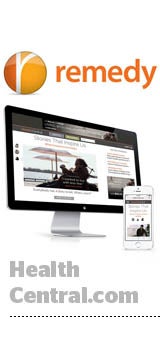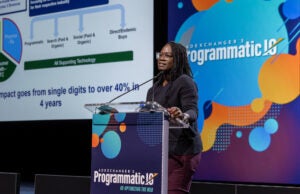 When targeting ads and content, health publisher Remedy Health Media, whose network of sites attract 16 million unique visitors a month, faces greater challenges than most digital publishers.
When targeting ads and content, health publisher Remedy Health Media, whose network of sites attract 16 million unique visitors a month, faces greater challenges than most digital publishers.
The Health Insurance Portability and Accountability Act (HIPAA) contains a privacy rule regulating the use of consumer health data, making it more difficult to personalize content and target advertising. The FDA regulates the messaging of the pharmaceutical companies that are the majority of Remedy Health’s advertisers.
But despite those challenges, Remedy Health has moved into two areas of innovation among publishers: sponsored content and data-segmented selling.
Sponsored Content
Combining data with emotion is a key part of the way Remedy Health’s site HealthCentral.com positions itself in the market, explained CRO Jim Curtis. “Content has to strike a chord before the data means anything,” he said.
HealthCentral, the most heavily trafficked site in the Remedy Health family (which includes wellness site BerkeleyWellness.com and HIV/AIDS resource TheBody.com), collects inspirational stories from patients who are also experts about their conditions.
Because of FDA regulations, HealthCentral has a unique native advertising strategy.
“You can’t do native advertising anywhere without a long medical review,” Curtis said. “Pharmaceutical companies are less likely to use the most innovate tactics to speak to patient base, because it hasn’t been vetted through the FDA or approved.”
The editorial team creates a personal story, which brands can exclusively sponsor, about the conditions HealthCentral covers every year.
When HealthCentral created a graphics-heavy, multimedia piece about a mountain climber who almost died from Crohn’s disease, it supplemented the story with banner ads from Humira, which produces a Crohn’s medication.
Custom content is popular – HealthCentral’s audience browses an average of 17 pages of custom content per visit, compared to four to five pages of regular content. Clickthrough rates, normally .4 or .25%, Curtis said, go up to 4%.
HealthCentral’s research shows that when a patient engages with a custom piece of content containing related advertising, they are three times more likely to ask for a drug or treatment than they would be after seeing a standard banner ad, Curtis said.
Curtis attributes these increases to the high relevance of the ads in the custom context. Because these stories are designed to be personal and emotional, he thinks they inspire people to take action for their own health.
Pharmaceutical companies typically use brand awareness to measure campaign success. Those that want to make a connection with sales can use insurance claims information from Crossix or Symphony.
Data Partnerships
One way Remedy Health matches the right content with the right person is by tapping into the electronic health records of patients who have opted in.
This is enabled through a partnership with Phreesia, which does billing and electronic medical record integration for doctors and allows patients to opt in to receive tailored content.
HealthCentral emails articles to these patients, which appear to be sent from their doctor, to personalize the messaging.
Moving that information requires following HIPAA’s stringent data-protection regulations. “Just to create an environment that is secure enough to transfer data from partner Phreesia requires a number of different security measures, as opposed to just transferring data about a car intender,” Curtis said.
The partnership also creates retargeting opportunities for Remedy Health advertisers. The publisher’s reach extension program, through its partner Collective, offers additional reach to target readers based on their viewing behavior.
The Move Toward Custom
Remedy Health sells most of its inventory directly. Exchange-sold inventory accounts for about 2% of sold inventory. “We’re going to stay a custom content company,” Curtis said.
That’s because Remedy Health’s CPMs are “200 to 300 times more than the folks in the large portals, like AOL,” Curtis said, mostly because of its niche audience. “We often know that patients visiting have the condition the advertiser wants to target.”
Consequently, Remedy Health’s custom programs continue to grow.
“Two years ago, media sales were 65% of the revenue we drive for the company,” Curtis said. “In 2015, that will be about 45%. In two years, we’ve shifted to become a custom product vs. media type of exchange.”
The move away from exchange-based advertising makes sense in the health vertical, Curtis said: “You need to talk to someone with a condition and inspire them enough to keep taking their medication or try a new medication, and that requires custom content.”














